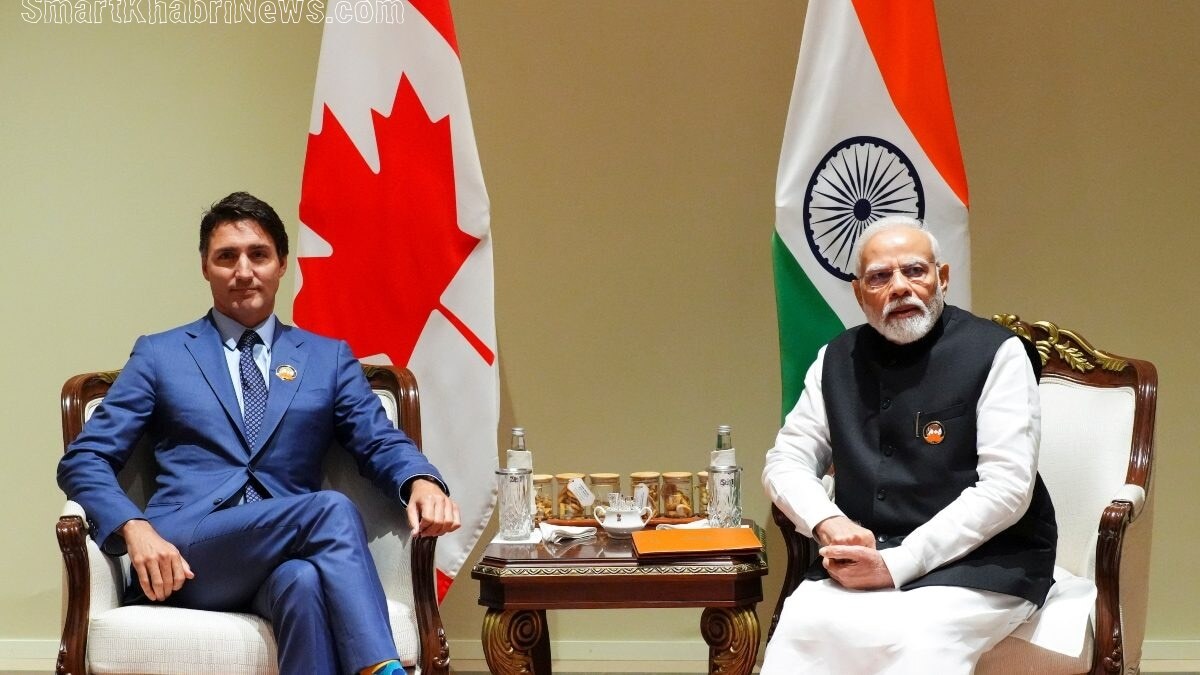Justin Trudeau’s Actions and Their Impact on India-Canada Relations
Justin Trudeau has much to answer for when it comes to causing a crisis in India-Canada relations. India has repeatedly expressed its concerns to the Canadian government about allowing anti-Indian Khalistani activities on Canadian soil, but these protests have gone unheeded. Trudeau’s interference in India’s internal affairs, particularly his sympathetic comments on the farmers’ agitation, has not been well-received.
One of the most alarming aspects of Trudeau’s tenure has been his tolerance of Sikh extremist elements in Canada organizing referenda for an independent Khalistan and even glorifying the assassination of Mrs. Indira Gandhi during a parade. Additionally, there have been calls by these elements to kill Indian diplomats, and diplomatic premises and Hindu temples have been attacked.
India’s requests for the extradition of individuals involved in terrorist violence in India have not been successful, and Trudeau’s statements in Parliament have further escalated tensions. He has mentioned “credible allegations” of Indian involvement in the killing of Hardeep Singh Nijjar, but such allegations do not constitute concrete evidence. Furthermore, his reference to “potential links” indicates that the investigation is still ongoing.
The question arises: if Trudeau already possesses sufficient evidence of an Indian link, why does he seek India’s cooperation in the investigation? On the contrary, he has rejected cooperation with India to curb the activities of Sikh extremists in Canada, a move that would serve the interests of both nations in maintaining friendly ties.
Trudeau is well aware of the history of the Khalistan movement in Punjab, including ethnic killings, the storming of the Golden Temple, the assassination of Mrs. Gandhi, and the subsequent anti-Sikh riots in Delhi. He also knows about the links between Khalistani elements and Pakistan, which currently shelters some of them and collaborates with these groups in Canada and elsewhere to revive terrorism in Punjab.
Despite this knowledge, Trudeau has been unresponsive to India’s concerns about efforts in Canada to revive separatism and violence in Punjab. In contrast, India has not harmed Canada’s sovereignty or internal peace and stability.
Questions for Trudeau
Trudeau’s concern about the killing of an individual with a Red Corner Notice from Interpol raises questions. How did Nijjar, a fugitive from Indian justice, become a Canadian citizen? This raises concerns about Canadian politics, bureaucratic attitudes toward India, and the influence of the Khalistani lobby within the Canadian system.
Trudeau has also irresponsibly tried to associate India with regimes accused of assassinations on foreign soil. Such an accusation requires a strong basis, which seems lacking in this case. He has sought support from the Anglosphere, including the US and Australia, for his accusations against India, further complicating the situation.
The Trudeau Legacy
Trudeau’s actions may be influenced by a family tradition. His father, Pierre Trudeau, protected Khalistani elements in Canada and refused the extradition of Talwinder Singh Parmar, implicated in the 1985 Air India plane bombing. In the 2021 election, Trudeau’s Liberal Party failed to secure a majority and now relies on the NDP led by Jagmeet Singh for survival.
While Jagmeet Singh’s personal views on Khalistan may vary, the presence of the NDP’s 25-strong group in Parliament could exert pressure on Trudeau. If they can influence the political class, it’s not a stretch to assume they could influence the police and security apparatus.
Trudeau’s woke mentality and emphasis on “minority issues” may also play a role in his willingness to damage state-to-state ties for the sake of a known criminal.
Conclusion
Justin Trudeau’s actions have strained India-Canada relations and raised serious concerns about his support for Khalistani elements and accusations against India. The diplomatic fallout from his actions underscores the need for both countries to cooperate in addressing each other’s concerns for the sake of maintaining friendly and productive ties.
Disclaimer: Kanwal Sibal is a former Indian Foreign Secretary, and the views expressed in this article are personal and solely those of the author. They do not necessarily reflect Smartkhabrinews’s views.
Tags: India-Canada Relations, Khalistani Elements, Justin Trudeau, Diplomacy, International Relations
